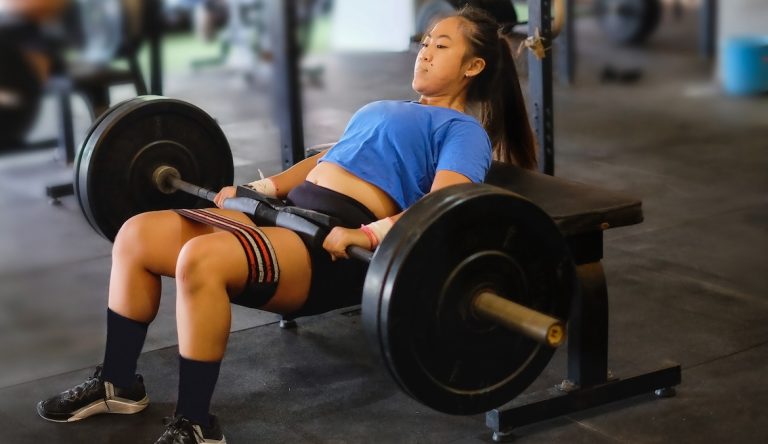
[ad_1]
The latest claim circulating TikTok? That doing hip thrusts in the gym will lower your chances of getting pregnant.
Although it’s not totally clear where this idea originated, it’s been making the rounds, with some creators making cheeky videos about adding more weight to celebrate their child-free lifestyle. But before you start swapping your birth control pills for hip thrusts, we spoke with a reproductive endocrinologist to suss out the science behind the bold claims.
Can pelvic hip thrusts cause infertility?
If you do hope to get pregnant one day, we have good news: “There is no known association between this exercise and infertility,” says Lora Shahine, MD, reproductive endocrinologist and program director at Pacific NW Fertility in Seattle. Infertility is often the result of a multitude of factors ranging from hormonal imbalances to reproductive tract abnormalities. It’s unlikely that any single exercise, including pelvic hip thrusts, would lead to infertility, she says.
Some commenters speculated that placing a heavy barbell on your pelvis can cause uterine prolapse, a condition where the uterus drops down into the vaginal canal. But again, Dr. Shahine says there likely isn’t anything to worry about. With proper form and when done in moderation, weighted pelvic hip thrusts are a safe exercise to incorporate into your routine.
Just like any exercise, performing hip thrusts incorrectly can lead to discomfort or injury. When setting up your weighted hip thrusts, place the barbell in the crease of your hips and use a barbell pad if the pressure on your hips is uncomfortable (it’ll also prevent bruising on your hip bones).
And what if you’re actively trying to conceive? Should you lay off the hip thrusts just to be safe?
“In general when trying to conceive, I recommend continuing to exercise and move the body—exercise is very beneficial for physical and mental health,” Dr. Shahine says.
But it’s best to avoid extremes. Adding on significant amounts of weight, dramatically increasing your time in the gym or drastically changing your workout routine can throw off your hormones, alter your ovulation, and make it more difficult to get pregnant, she says. So if your goal is conception, now probably isn’t the time to push for that hip thrust PR or start training for an ultramarathon.
Can you hip thrust while pregnant?
Dr. Shahine says there’s no evidence to suggest women need to stop performing pelvic hip thrusts once they’re pregnant, but it’s best to work with a personal trainer certified in prenatal fitness who can suggest modifications to make the exercise more comfortable as the trimesters progress.
Once your belly becomes a bigger factor (pun intended), the barbell may not feel as comfortable on your abdomen. Instead, swap the barbell for a pair of dumbbells high on your quads or a resistance band.
And while weighted hip thrusts may not be the secret to warding off pregnancy, they are still one of the most effective exercises out there for some serious glute gains. So keep on thrusting.
[ad_2]
Source link